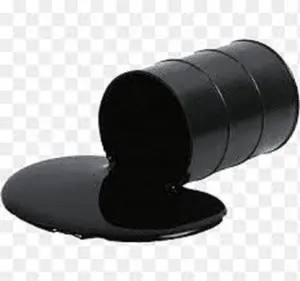What are Crude Oils
Crude oils are unrefined petroleum products that have been extracted from the earth and are composed of hydrocarbon deposits and other organic materials. They serve as a primary resource for energy production and are the raw materials for a multitude of chemical products, including fuels, plastics, and pharmaceuticals. Crude oil is vital for industries and economies worldwide, constituting a significant aspect of the global commodities market.
The extraction of crude oil is just the beginning; it must be refined to produce usable substances like gasoline, diesel, and various chemical reagents. Refineries process crude oil to separate and develop these products through a series of physical and chemical methods. This processing transforms the crude into valuable commodities for transportation, heating, paving roads, generating electricity, and manufacturing products.
The clientele for crude oils is diverse, ranging from large-scale energy producers and refineries to smaller businesses that use oil as a feedstock or a source of energy. Crude oil is traded globally and transported via tankers, pipelines, and by rail to meet the demands of various industries around the world. The market operates on principles of supply and demand, with prices fluctuating based on geopolitical events, natural disasters, production changes, and consumption trends.
Types of Crude Oils
The classification of crude oils can vary depending on their geographic origin, composition, and physical properties. Here are some common types:
Light Sweet Crude Oil: Known for its low sulfur content and high API gravity, light sweet crude is preferred for its ease in refining, particularly into gasoline. It typically commands a higher price on the market due to its quality and lower environmental impact.
Heavy Sour Crude Oil: This type has a higher sulfur content and lower API gravity. It requires more complex refining processes to remove impurities and produce high-quality end products. Heavy sour crude is generally less expensive due to these additional processing requirements.
Intermediate Crude Oil: Positioned between light sweet and heavy sour crudes in terms of sulfur content and API gravity, intermediate crude offers a balance that makes it suitable for producing a wide range of products.
Each type has its common use cases; light sweet crude is often used in the production of gasoline and diesel fuels while heavy sour crude might be directed towards producing asphalt or fuel oil. Intermediate crudes are versatile and can be refined into multiple products depending on the requirements of the refinery.
How to choose Crude Oils
Selecting the appropriate type of crude oil depends on several factors that align with business needs. Refineries must consider the technical specifications of their equipment as well as their desired product mix when choosing a crude oil. For instance:
Refining Complexity: Facilities equipped with advanced refining processes can handle heavier, sour crudes; however, simpler operations might only refine light sweet crudes effectively.
Product Demand: Businesses should assess market trends to understand which petroleum products are in demand. A refinery focused on gasoline may prefer light sweet crude to maximize their output of this product.
Price Sensitivity: Economic considerations play a pivotal role; businesses must weigh the cost benefits of cheaper heavy sour crudes against the potential higher returns from refined products made from light sweet crudes.
Environmental Regulations: Stricter sulfur emissions standards in certain regions may influence the choice towards low-sulfur crudes to minimize environmental impact.
Understanding these considerations can help businesses make informed decisions when purchasing crude oils through Alibaba.com's B2B marketplace.
Best Crude Oils on Alibaba.com
Alibaba.com stands as an extensive marketplace connecting businesses across the globe with reputable suppliers of various types of crude oils. The platform's vast network enables buyers to source the right kind of crude oil that fits their specific industrial needs, whether for energy production, manufacturing processes, or as a base component in other products. With numerous filters available for selection criteria such as oil type, grade, place of origin, application, and packaging options, buyers can streamline their search to find suitable offers that align with their business strategy.
Moreover, Alibaba.com's Trade Assurance service offers peace of mind by safeguarding payments until customers confirm satisfactory delivery of their orders. This commitment to secure transactions underscores Alibaba.com's dedication to facilitating reliable international trade. With features allowing easy mobile purchases and multilingual communication support complementing its vast product offerings in over 190 countries, Alibaba.com enables businesses to effortlessly broaden their sourcing options while ensuring transactional security without geographical limitations.
The platform's emphasis on verifying supplier credibility emphasizes quality assurance within Alibaba.com’s ecosystem. Organizations seeking wholesale quantities or tailored requirements will find that Alibaba.com delivers an accessible path to procure crude oils in bulk efficiently and effectively.
Common FAQs for Crude Oils
What Is Crude Oil Used For?
Crude oil is primarily used as a source of fuel and as a raw material in the manufacturing of plastics, chemicals, and other important industrial products. Its derivatives are essential in various sectors including transportation, energy, and petrochemicals.
How Is Crude Oil Extracted?
Crude oil is extracted through drilling into the earth where oil reservoirs are found. The methods include onshore and offshore drilling, and more advanced techniques like horizontal drilling and fracking have been developed to access hard-to-reach reservoirs.
What Determines the Quality of Crude Oil?
The quality of crude oil is determined by several factors including its API gravity (a measure of how heavy or light the oil is compared to water) and its sulfur content. Light sweet crude with high API gravity and low sulfur content is generally of higher quality.
How Does Crude Oil Classification Affect Refining Processes?
The classification of crude oil, such as light, intermediate, or heavy, affects refining processes because each type requires different methods for transformation into end products. Light crudes are easier and less costly to refine compared to heavy crudes which require more complex processes.
What Are the Main Types of Products Derived From Crude Oil?
The main products derived from crude oil include gasoline, diesel, jet fuel, heating oil, and asphalt. Additionally, petroleum byproducts are used to produce plastics, synthetic materials, pharmaceuticals, and a wide range of chemicals.
Can Businesses Purchase Crude Oil in Small Quantities?
Typically, crude oil is traded in large volumes due to its industrial nature. However, businesses may negotiate smaller quantities depending on the supplier’s flexibility and the specific terms of purchase.
What Are the Storage Requirements for Crude Oil?
Storage requirements for crude oil involve maintaining it in a cool, dry place away from direct sunlight. It must be stored in specially designed tanks that can handle its chemical properties and prevent leaks or contamination.
How Is the Price of Crude Oil Determined?
The price of crude oil is influenced by global supply and demand dynamics, geopolitical events, production costs, OPEC regulations, market speculation, and currency fluctuations. It is traded on commodity exchanges which help set the market price.
What Is the Difference Between Sweet and Sour Crude Oil?
Sweet crude oil contains low levels of sulfur and is generally easier to refine into high-value products like gasoline. Sour crude oil has a higher sulfur content which requires more extensive refining processes to remove impurities.
Why Is API Gravity Important in Crude Oils?
API gravity is a measure that indicates how heavy or light a petroleum liquid is compared to water. It is important because it helps determine how much gasoline or diesel fuel can be produced from a barrel of crude.
What Does 'Heavy' Mean in Regards to Crude Oil?
'Heavy' refers to crude oils with lower API gravities; they are denser and contain more complex molecules which typically result in them being harder to refine compared to 'light' crude oils.
How Can Businesses Verify the Quality of Crude Oil Before Purchase?
Businesses can request quality certification or product specifications from suppliers. Additionally, they may conduct independent inspections or request samples for analysis prior to making a bulk purchase.
What Are The Environmental Considerations When Purchasing Crude Oil?
Environmental considerations when purchasing crude oil include the impact of its extraction process on ecosystems and the carbon footprint associated with its transportation and refinement.
How Do Refining Capacities Affect Crude Oil Selection for Businesses?
Refining capacities dictate which type of crude oil a business can process efficiently. Facilities with more advanced capabilities can refine heavier and sour crudes while others may only be able to process light sweet varieties.
What Is Meant By 'Sweet' In Sweet Crude Oil?
'Sweet' refers to crude oils with low sulfur content. These oils are described as 'sweet' because historically, low sulfur was associated with a less sour taste when compared to high-sulfur 'sour' oils.









































 浙公网安备 33010002000092号
浙公网安备 33010002000092号 浙B2-20120091-4
浙B2-20120091-4